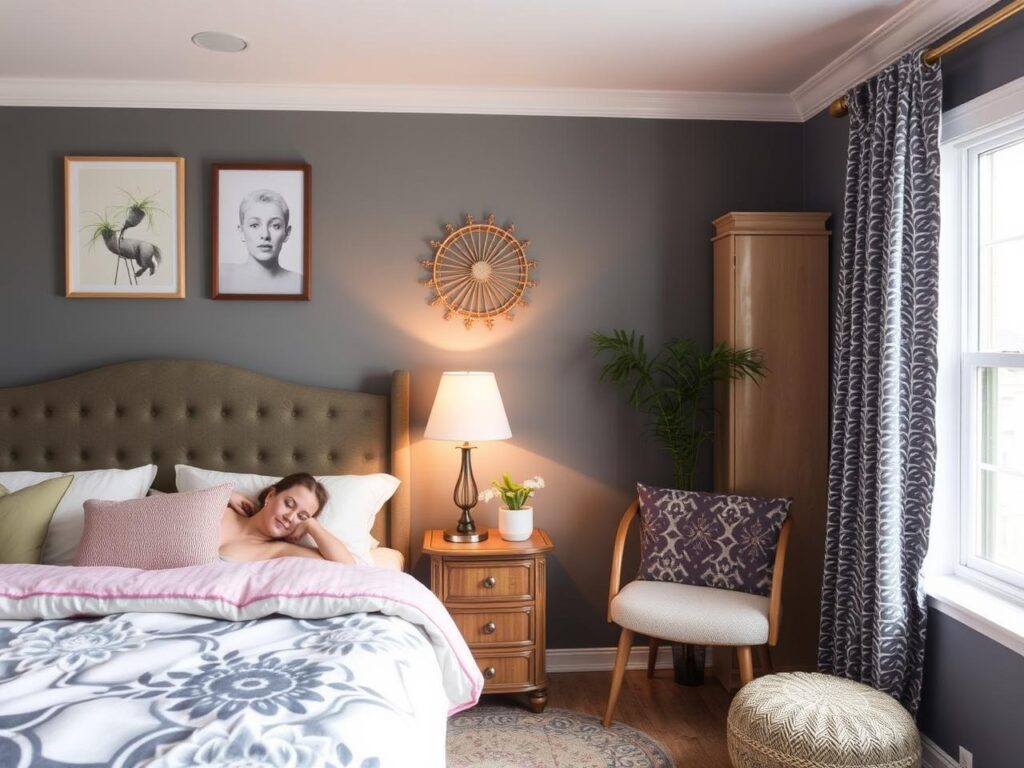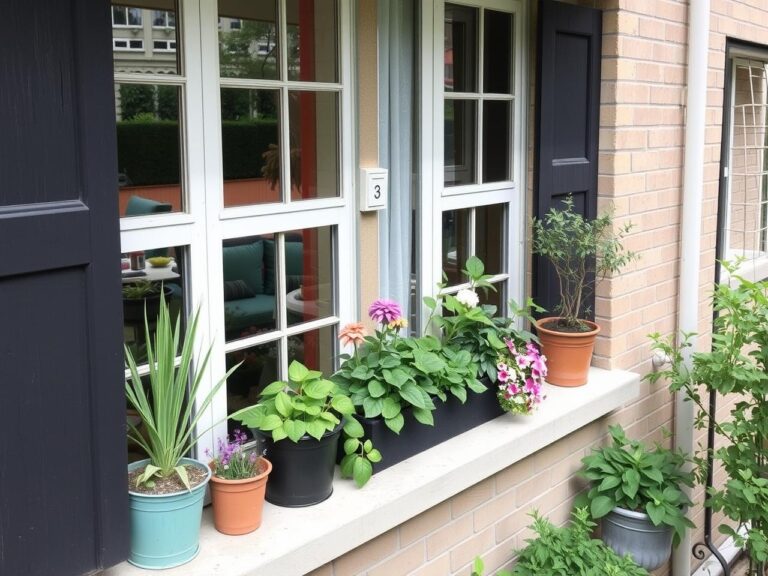How to Get Better Sleep: 7 Proven Tips
Establishing a consistent sleep schedule is crucial for achieving quality rest. This involves going to bed and waking up at the same time daily, including weekends. This practice regulates the body’s circadian rhythm, or internal clock, ensuring adequate and high-quality sleep.
A consistent schedule helps the body recognize when to wind down and when to wake up, facilitating easier sleep onset and more refreshed awakenings. Sleep quality is equally important as quantity. The National Sleep Foundation recommends 7-9 hours of sleep per night for adults.
However, individual sleep needs may vary, so it’s essential to determine the amount of sleep that allows optimal functioning. By maintaining a consistent sleep schedule and prioritizing sleep quality, individuals can improve their overall health and well-being.
Key Takeaways
- Establish a consistent sleep schedule to regulate your body’s internal clock and improve overall sleep quality.
- Create a relaxing bedtime routine to signal to your body that it’s time to wind down and prepare for sleep.
- Limit exposure to screens before bed to reduce the impact of blue light on your body’s natural sleep-wake cycle.
- Make your bedroom a sleep-friendly environment by keeping it cool, dark, and quiet to promote better sleep.
- Be mindful of your diet and exercise, as eating heavy meals and engaging in vigorous exercise close to bedtime can disrupt sleep.
Create a Relaxing Bedtime Routine

Calming Activities to Help You Unwind
A bedtime routine can include activities such as taking a warm bath, reading a book, or practicing relaxation techniques like deep breathing or meditation. By engaging in these calming activities before bed, you can help reduce stress and anxiety, making it easier to fall asleep and stay asleep throughout the night.
Avoid Stimulating Activities Before Bed
In addition to engaging in relaxing activities, it’s important to avoid stimulating activities before bed. This means avoiding things like intense exercise, heavy meals, and stimulating electronics in the hour leading up to bedtime. Instead, focus on calming and soothing activities that can help prepare your body and mind for sleep.
Setting the Stage for a Restful Night’s Sleep
By creating a relaxing bedtime routine, you can help set the stage for a restful night’s sleep. This routine can help signal to your body that it’s time to sleep, making it easier to fall asleep and stay asleep throughout the night.
Limit Exposure to Screens Before Bed

Limiting exposure to screens before bed is crucial for getting a good night’s sleep. The blue light emitted by electronic devices such as smartphones, tablets, and computers can interfere with the body’s production of melatonin, a hormone that regulates sleep. This can make it harder to fall asleep and can also disrupt the quality of your sleep once you do drift off.
To combat this, it’s important to limit screen time in the hour leading up to bedtime. Instead of scrolling through your phone or watching TV before bed, consider engaging in other relaxing activities such as reading a book, practicing gentle yoga, or listening to calming music. By reducing your exposure to screens before bed, you can help promote better sleep and improve the overall quality of your rest.
In addition to limiting screen time before bed, it’s also important to create a technology-free zone in your bedroom. This means keeping electronic devices out of the bedroom altogether, as they can be a source of distraction and temptation that can interfere with your ability to wind down and fall asleep. By creating a screen-free environment in your bedroom, you can help promote better sleep and create a more restful space for relaxation.
Make Your Bedroom a Sleep-Friendly Environment

Creating a sleep-friendly environment in your bedroom is essential for getting a good night’s rest. This means making sure that your bedroom is cool, dark, and quiet. Consider using blackout curtains or an eye mask to block out any light that may be coming in from outside.
Additionally, using earplugs or a white noise machine can help drown out any disruptive sounds that may be keeping you awake at night. In addition to creating a comfortable sleeping environment, it’s important to invest in a supportive mattress and pillows that are suited to your individual needs. A comfortable mattress and pillows can make a world of difference in how well you sleep at night.
It’s also important to keep your bedroom clutter-free and well-organized, as a tidy space can help promote feelings of calm and relaxation. By making your bedroom a sleep-friendly environment, you can help set the stage for better sleep and create a space that is conducive to relaxation and rest.
Be Mindful of Your Diet and Exercise
Your diet and exercise habits can have a significant impact on the quality of your sleep. Eating a healthy, balanced diet and engaging in regular physical activity can help promote better sleep and overall well-being. It’s important to avoid heavy meals, caffeine, and alcohol close to bedtime, as these can all interfere with your ability to fall asleep and stay asleep throughout the night.
In addition to being mindful of what you eat and drink, it’s important to prioritize regular exercise as part of your daily routine. Engaging in physical activity on a regular basis can help regulate your body’s internal clock and promote better sleep. However, it’s important to avoid intense exercise close to bedtime, as this can have the opposite effect and make it harder to fall asleep.
By being mindful of your diet and exercise habits, you can help set yourself up for better sleep and improved overall health.
Manage Stress and Anxiety

Relaxation Techniques for Better Sleep
Practicing relaxation techniques can help calm your mind and body, making it easier to fall asleep. This can include practices such as mindfulness meditation, deep breathing exercises, or engaging in calming activities such as yoga or tai chi.
Healthy Outlets for Stress
In addition to practicing relaxation techniques, it’s crucial to find healthy outlets for stress. This can include talking to a friend or loved one, journaling, or seeking professional help if needed.
Creating a Peaceful State of Mind
By finding healthy ways to manage stress and anxiety, you can help create a more peaceful state of mind that is conducive to better sleep. This, in turn, can improve the quality of your rest and overall well-being.
Seek Professional Help if Necessary
If you are struggling with chronic sleep issues despite making efforts to improve your sleep habits, it may be time to seek professional help. A healthcare provider or sleep specialist can help identify any underlying issues that may be contributing to your sleep problems and provide guidance on how to address them. In some cases, medication or therapy may be necessary to address chronic sleep issues such as insomnia or sleep apnea.
By seeking professional help when needed, you can take proactive steps towards improving your sleep and overall well-being. In conclusion, getting a good night’s sleep is essential for overall health and well-being. By establishing a consistent sleep schedule, creating a relaxing bedtime routine, limiting exposure to screens before bed, making your bedroom a sleep-friendly environment, being mindful of your diet and exercise, managing stress and anxiety, and seeking professional help if necessary, you can set yourself up for better sleep and improved overall health.
Prioritizing good sleep habits is an investment in your health that can have far-reaching benefits for years to come.
FAQs
What are some proven tips for getting better sleep?
Some proven tips for getting better sleep include establishing a regular sleep schedule, creating a relaxing bedtime routine, ensuring your sleep environment is comfortable, avoiding caffeine and electronics before bed, exercising regularly, managing stress, and being mindful of what you eat and drink.
How can establishing a regular sleep schedule help improve sleep?
Establishing a regular sleep schedule can help regulate your body’s internal clock, making it easier to fall asleep and wake up at the same time each day. This consistency can improve the quality of your sleep over time.
Why is creating a relaxing bedtime routine important for better sleep?
Creating a relaxing bedtime routine can signal to your body that it’s time to wind down and prepare for sleep. Activities such as reading, taking a warm bath, or practicing relaxation techniques can help promote better sleep.
What role does the sleep environment play in getting better sleep?
A comfortable sleep environment, including a supportive mattress, comfortable pillows, and a cool, dark, and quiet room, can contribute to better sleep quality. It’s important to create a sleep environment that is conducive to relaxation and rest.
How does avoiding caffeine and electronics before bed impact sleep?
Caffeine and electronics, such as smartphones and tablets, can interfere with the body’s ability to relax and fall asleep. Avoiding these stimulants before bed can help promote better sleep.
Why is regular exercise important for better sleep?
Regular exercise can help regulate your sleep patterns and promote better sleep. However, it’s important to avoid vigorous exercise close to bedtime, as it can have a stimulating effect.
How can managing stress and being mindful of what you eat and drink improve sleep?
Managing stress through relaxation techniques and being mindful of what you eat and drink, especially in the hours leading up to bedtime, can help promote better sleep. Certain foods and drinks, such as heavy or spicy meals, alcohol, and nicotine, can disrupt sleep patterns.







